On March 18, the NABH Board of Trustees adopted its Access to Care resolution, which states that competent clinical management of access to care must be based on a clear understanding of the purpose behind behavioral healthcare services. Generally accepted standards of professional practice, articulated in robust clinical research and clinical specialty organization consensus statements, recognize that behavioral healthcare treatment is intended to: (1) Prevent, diagnose, and/or treat behavioral health conditions; (2) Promote age-appropriate growth and development; (3) Minimize the progression of disability; (4) Facilitate, maintain, and/or restore functional capacity; and (5) Support long-term recovery.
NABH commissioned Manatt Health to conduct this first-of-its-kind study that focuses on three federal regulatory domains attached to participation in the Medicare program: the so-called “B-tag” requirements, a detailed set of standards for patient evaluations, medical records, and staffing in inpatient psychiatric facilities; “ligature risk points,” or those aspects of the physical environment that a patient could use to attempt self-strangulation; and the Emergency Medical Treatment and Labor Act (EMTALA), which obligates a hospital to screen all patients for emergency medical conditions, and, if an emergency condition is identified, to stabilize the patient before the patient may be discharged or transferred.

